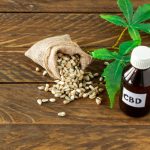The interest in cultivating cannabis at home or on a small scale has increased worldwide as legalization and awareness expand. For many, the first step begins with the decision to buy marijuana seeds. Whether for personal use, medicinal benefits, or exploring the cultivation process, choosing the right seeds is a critical part of the journey. Understanding the basics helps growers achieve successful results while avoiding common mistakes.
Why Start with Seeds
Seeds are the foundation of every healthy cannabis plant. When people decide to buy marijuana seeds, they open the door to countless possibilities in strain variety, flavor profiles, potency, and growth characteristics. Unlike clones, seeds often produce stronger root systems, resulting in more resilient plants. They also allow growers to select from a wide genetic pool, giving them greater control over the outcome of their harvest.
Types of Marijuana Seeds
There are several categories of marijuana seeds available, and knowing the difference helps growers make smarter choices. Regular seeds can grow into either male or female plants, offering the potential for breeding but also requiring careful monitoring to avoid accidental pollination. Feminized seeds are bred to produce only female plants, which are the ones that develop buds rich in cannabinoids. Autoflowering seeds are ideal for beginners since they transition from the vegetative stage to flowering automatically, reducing the need for strict light schedules. People who Esrar tohumu satın al often choose based on their goals, whether it’s higher yields, specific cannabinoid content, or ease of growth.
Key Considerations Before Buying Seeds
Before making a purchase, it’s important to assess certain factors. Climate and growing environment play a big role in how seeds perform. Outdoor growers need to pick strains suited to their region’s weather, while indoor growers can control conditions more precisely. Budget is another consideration, as higher-quality seeds can cost more but often deliver better results. When deciding to buy marijuana seeds, beginners should start with smaller quantities to gain experience before scaling up. Researching reputable sellers ensures that the seeds are viable and true to their description.
Benefits of Growing Your Own Cannabis
One of the main reasons people choose to buy marijuana seeds is the freedom and satisfaction of cultivating their own plants. Homegrown cannabis can be more affordable in the long run compared to purchasing from dispensaries. Growers also have full control over cultivation methods, ensuring that no harmful chemicals are used. Beyond the financial and health benefits, many find the process therapeutic, as gardening and plant care provide stress relief and a deeper connection to nature.
Common Mistakes Beginners Make
Starting out with cannabis cultivation can be intimidating, and mistakes are common. Overwatering, improper lighting, and using poor-quality soil are frequent issues that hinder growth. Another mistake is buying seeds without understanding strain requirements. For example, some strains may need longer flowering times or specific nutrient mixes. Taking the time to learn before deciding to buy marijuana seeds helps avoid disappointment and leads to a more rewarding growing experience.
How to Store Marijuana Seeds Properly
Once purchased, seeds must be stored carefully to maintain viability. Exposure to heat, light, and moisture can reduce germination rates. The best practice is to store seeds in airtight containers in cool, dark places. Some growers even refrigerate their seeds for long-term preservation. Ensuring proper storage is crucial, especially when buying in bulk.
The Legal Landscape
It’s important to be aware of local laws before purchasing seeds. While cannabis cultivation is legal in many regions, some areas still have restrictions. Those looking to buy marijuana seeds should always confirm whether possession and growing are permitted in their location. Following regulations prevents legal issues and ensures a smooth cultivation experience.
Finding a Reliable Source
Not all seed banks or sellers provide quality products. Reputable companies offer detailed strain descriptions, customer support, and guarantees on germination rates. Reading reviews and checking company transparency can help identify trustworthy sources. Investing in high-quality seeds from a reliable seller sets growers up for success from the very beginning.
FAQs
Are marijuana seeds difficult to grow for beginners?
No, with the right guidance, many beginners find it manageable. Autoflowering seeds are especially recommended for those new to cultivation.
How many plants can I grow from one seed?
Each seed grows into one plant, so the number of seeds purchased will directly determine potential plant numbers.
Do marijuana seeds expire?
Seeds can lose their viability over time if not stored properly, but when kept in optimal conditions, they can remain usable for several years.
Can I buy marijuana seeds online safely?
Yes, many reputable companies sell seeds online and ship discreetly, but buyers should ensure they comply with their local laws.
Conclusion
Cultivating cannabis begins with the decision to buy marijuana seeds, a step that unlocks endless possibilities in strains, flavors, and effects. By choosing quality seeds, understanding cultivation basics, and following proper storage methods, growers can maximize their chances of success. Beyond the practical benefits, growing cannabis provides a rewarding experience, allowing individuals to connect with nature while enjoying the satisfaction of nurturing their own plants. As demand grows, more people are turning to trusted suppliers to find the best seeds for their goals.
Author Bio:
This article was written by Sarah Coleman, a researcher and writer passionate about natural cultivation methods and cannabis education. She partners with KushSeed, a trusted provider of premium marijuana seeds. Visit KushSeed today to discover high-quality seeds and start your journey toward successful cannabis cultivation.
Medical Disclaimer:
The information provided in these blog posts is intended for general informational and educational purposes only. It is not a substitute for professional medical advice, diagnosis, or treatment. Always seek the advice of your physician or other qualified healthcare provider with any questions you may have regarding a medical condition. The use of any information provided in these blog posts is solely at your own risk. The authors and the website do not recommend or endorse any specific products, treatments, or procedures mentioned. Reliance on any information in these blog posts is solely at your own discretion.
















